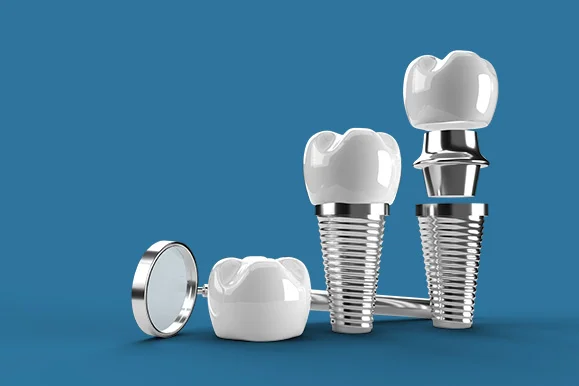What is an Implant; An implant is a medical device designed to replace a missing biological structure, support a damaged biological structure, or enhance an existing biological structure. Implants can be made from various materials such as titanium, ceramic, plastic, or other biocompatible materials. Common types of implants include dental implants, joint replacements, cochlear implants, and pacemakers.
How is the Implant Made?
The process of making an implant generally involves the following steps:
- Design and Planning: Using imaging techniques such as X-rays, CT scans, or MRIs, a detailed plan is created to ensure the implant fits the patient’s anatomy.
- Material Selection: Choosing biocompatible materials that will not be rejected by the body.
- Manufacturing:
- CNC Machining: Precise computer-controlled machines carve the implant from a solid block of material.
- 3D Printing: Additive manufacturing can create complex structures by layering materials.
- Casting and Molding: For some implants, materials are cast into molds to create the desired shape.
- Surface Treatment: Enhancing the surface of the implant to improve integration with biological tissues.
- Sterilization: Ensuring the implant is free of any pathogens before use.
What are the Types of Implants?
- Dental Implants: Replace missing teeth and consist of a titanium post inserted into the jawbone.
- Orthopedic Implants: Used for joint replacements, such as hip and knee prostheses.
- Cardiac Implants: Include pacemakers and defibrillators to manage heart conditions.
- Cochlear Implants: Provide a sense of sound to individuals with severe hearing loss.
- Breast Implants: Used in cosmetic and reconstructive surgeries.
Implant Brands
Some well-known implant brands include:
- Dental Implants: Straumann, Nobel Biocare, Zimmer Biomet, and Dentsply Sirona.
- Orthopedic Implants: DePuy Synthes, Stryker, Smith & Nephew, and Zimmer Biomet.
- Cardiac Implants: Medtronic, Boston Scientific, St. Jude Medical (Abbott), and Biotronik.
What are the Benefits?
- Improved Functionality: Restores normal function to the affected area.
- Enhanced Quality of Life: Can significantly improve daily living and comfort.
- Durability: Designed to last many years with proper care.
- Aesthetics: Especially in dental and breast implants, they can greatly improve appearance.
What is the Lifetime?
The lifetime of an implant varies depending on the type and use:
- Dental Implants: Can last 15-25 years or more with proper care.
- Orthopedic Implants: Joint replacements can last 15-20 years, though newer materials and techniques are extending this.
- Cardiac Implants: Pacemakers typically last 5-15 years depending on the model and usage.
- Cochlear Implants: Can last many years but may need parts replaced periodically.
